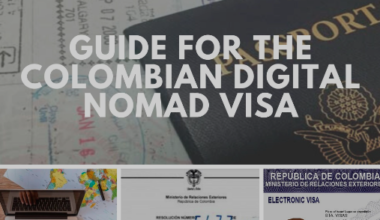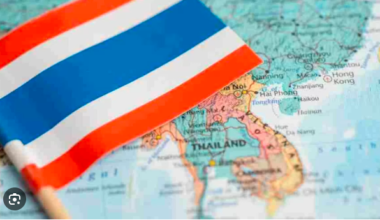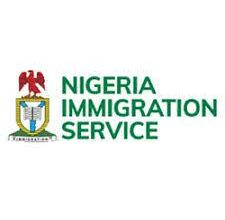The Digital Nomad Visa has revolutionized remote employment and worldwide mobility. This visa permits individuals to live and work in numerous countries while pursuing their jobs remotely. The Digital Nomad Visa favors people seeking a location-independent lifestyle as technology and flexible work arrangements have advanced.
It allows you to explore other cultures, experience different environments, and interact with local populations while maintaining professional obligations. In this guide, we will go into the essential details and requirements of the Digital Nomad Visa, equipping you to embark on your nomadic journey.
What is a digital nomad visa?
- What is a digital nomad visa?
- Digital nomad visa application process
- Documents required for Digital Nomad visa application
A Digital Nomad Visa is a visa that allows people to live and work in another country while still keeping their remote work or freelance status. It caters specifically to digital nomads, who use technology to work online from anywhere globally. The visa allows you to stay in a foreign nation for a lengthy period, usually from a few months to a year or more.
It is a practical solution for people looking to travel to new places, immerse themselves in diverse cultures, and enjoy the freedom of working remotely while earning a living. For location-independent professionals, the Digital Nomad Visa offers a world of possibilities.
READ MORE: New Immigration Law In Germany
Common types of digital nomad visa
Many types of Digital Nomad Visas are available worldwide, each with specific requirements and conditions. Here are some common types of Digital Nomad Visas:
1. Estonia’s e-Residency and Digital Nomad Visa: Estonia has an e-Residency program allowing people to set up online businesses and use digital services. Furthermore, they have developed a Digital Nomad Visa, which enables people to live and work in Estonia for up to a year. Applicants must show proof of remote work or freelancing income, health insurance, and a clean criminal record.
2. Germany freelance visa: Germany offers a Freelance Visa, which permits self-employed individuals to reside and work in the country. This visa is available to digital nomads with a sustainable freelance business. It requires proof of revenue, a business plan, health insurance, and sufficient finances to maintain themselves.
3. Thailand Smart Visa: Thailand’s Smart Visa intends to attract highly trained individuals and entrepreneurs. It caters to digital nomads in technology, robotics, or innovation-based industries. The visa allows for a four-year stay as well as employment authorization. Applicants must meet specific requirements, such as a minimum wage or investment level.
4. Portugal’s D7 Visa: The D7 caters to persons who earn a living independently, such as freelancers or remote workers. It permits you to live and work in Portugal for one year, with the option to renew for another two years. Applicants must provide proof of income, health insurance, and housing documents.
5. Czech Republic’s Zivnostensky Visa: The Zivnostensky Visa in the Czech Republic is ideal for self-employed individuals, mainly digital nomads. It necessitates evidence of a viable company plan, income, and health insurance. This visa grants permission to live and work in the nation.
Digital nomad visa application process
The application process for a Digital Nomad Visa is a step-by-step process. It starts with researching and understanding the specific requirements of the country you wish to apply to. Here is a general guide on the digital Nomad Visa application process:
1. Eligibility & Research: Research the countries offering Digital Nomad Visas and their specific eligibility criteria. Look for information on minimum income criteria, health insurance, criminal background checks, and other necessary documents.
2. Gather required documents: Gather all the necessary paperwork after deciding which country to apply to. These may include a valid passport with sufficient validity, proof of remote employment or freelancing income, health insurance coverage, a certificate of no criminal record, etc.
3. Complete the application form: Fill out the application form completely and accurately. Provide the relevant personal information, employment details, and contact information. Before submitting the form, double-check it for any errors or missing information.
4. Make an appointment: Some countries may ask you to make an appointment with their embassy or consulate to submit your application and supporting documentation. To find out how to schedule an appointment, go to the embassy or consulate’s official website.
5. Attend the meeting and submit documents: Bring all essential documentation to the embassy or consulate on the given date. Submit your application form, passport, and supporting documents to the immigration office. Get ready to answer any more questions or conduct additional interviews.
6. Wait for processing: The processing period will vary depending on the country once you submit your application. Be patient and give the immigration officials enough time to study your application and decide.
You will receive your visa or visa approval notice if your Digital Nomad Visa application is approved. Read and understand the visa terms and conditions, including the validity duration and any restrictions or limitations. Once you have obtained the visa, you can make travel plans to the country and begin your digital nomad and plan your trip.
READ MORE: Best Investment Property Loans
Documents required for Digital Nomad visa application
When applying for a Digital Nomad Visa, you may be required to submit various documents depending on the country. Generally, you may need to provide the following:
- Valid passport with sufficient validity.
- Proof of remote work or freelance income.
- Health insurance coverage for your stay.
- Clean criminal record or police clearance.
- Completed application form.
- Proof of accommodation or address in the host country.
- Proof of travel itinerary or return ticket.
- Financial statements or bank statements to prove sufficient funds.
- Proof of educational qualifications or professional certifications.
- Passport-sized photographs.






